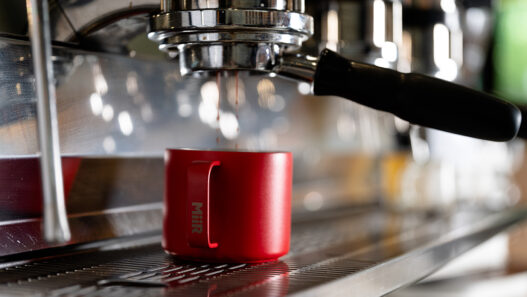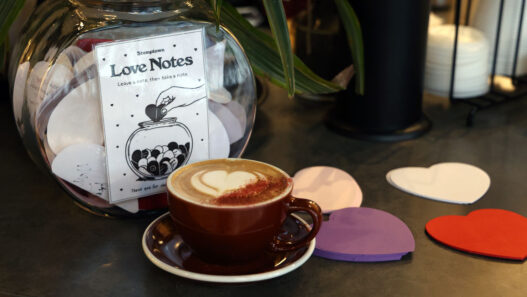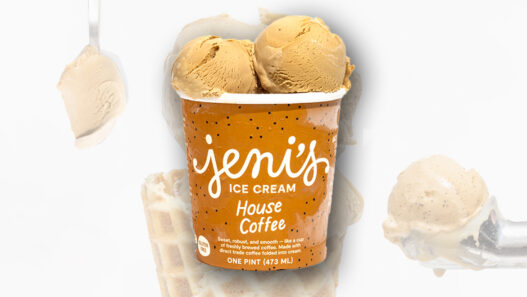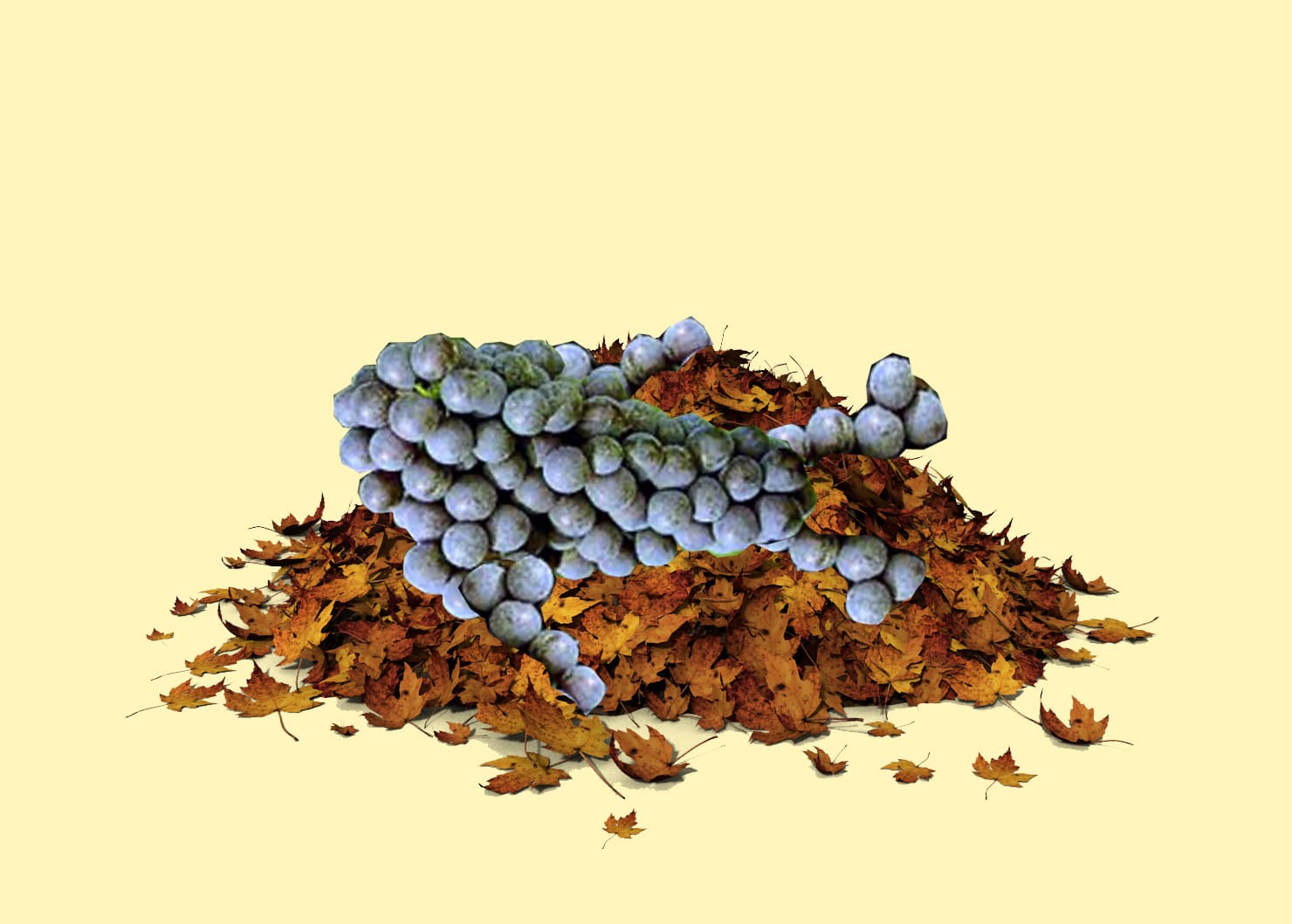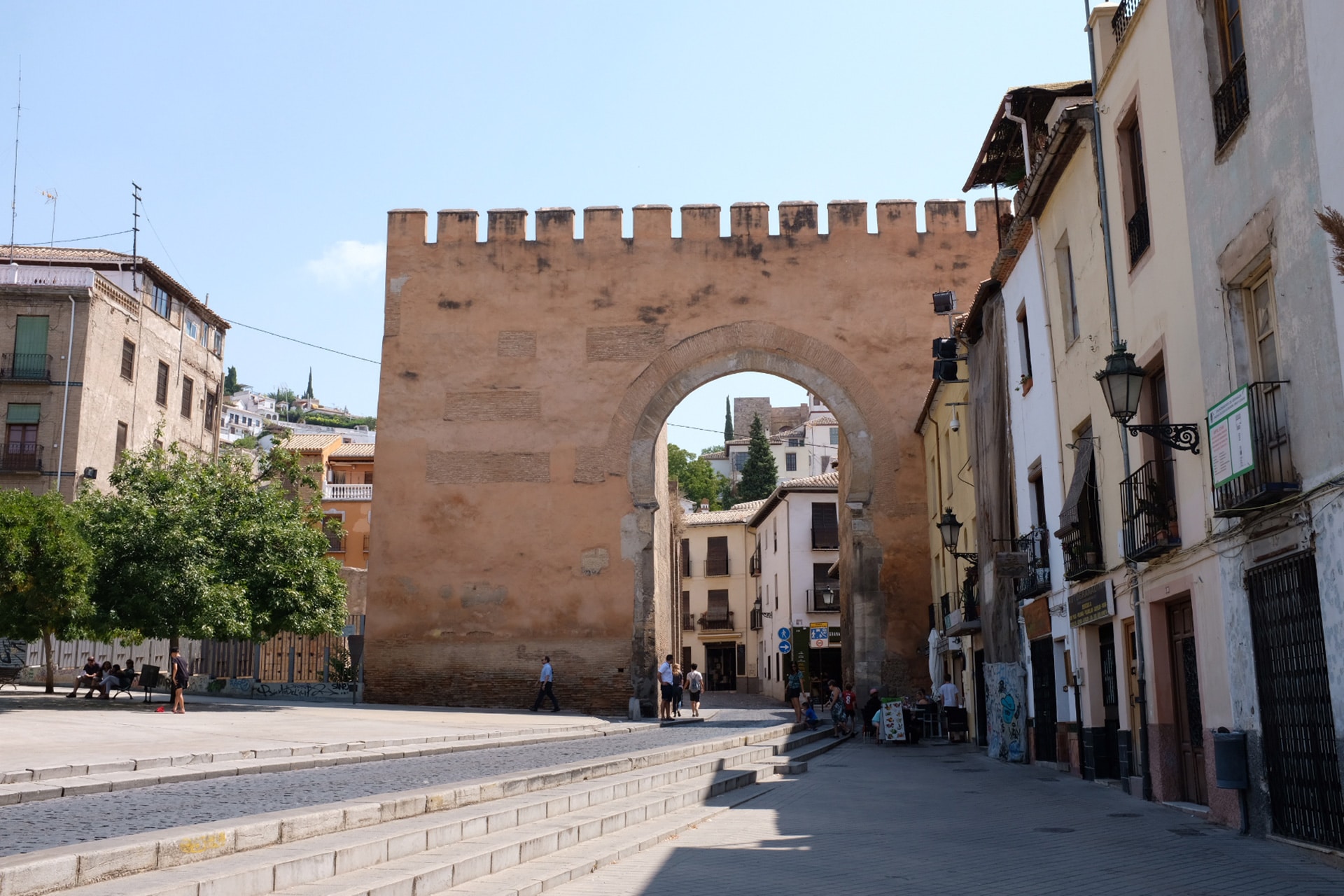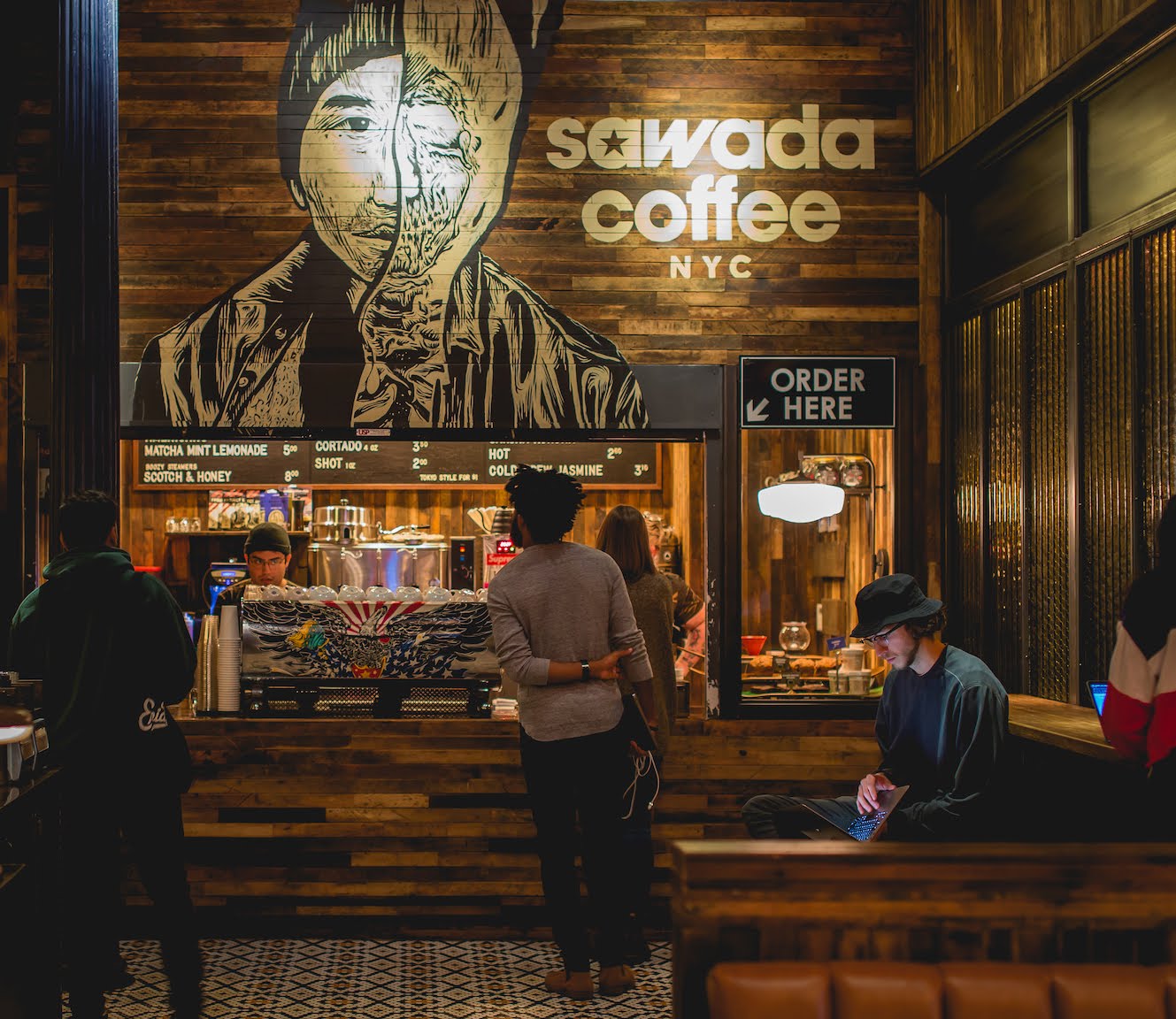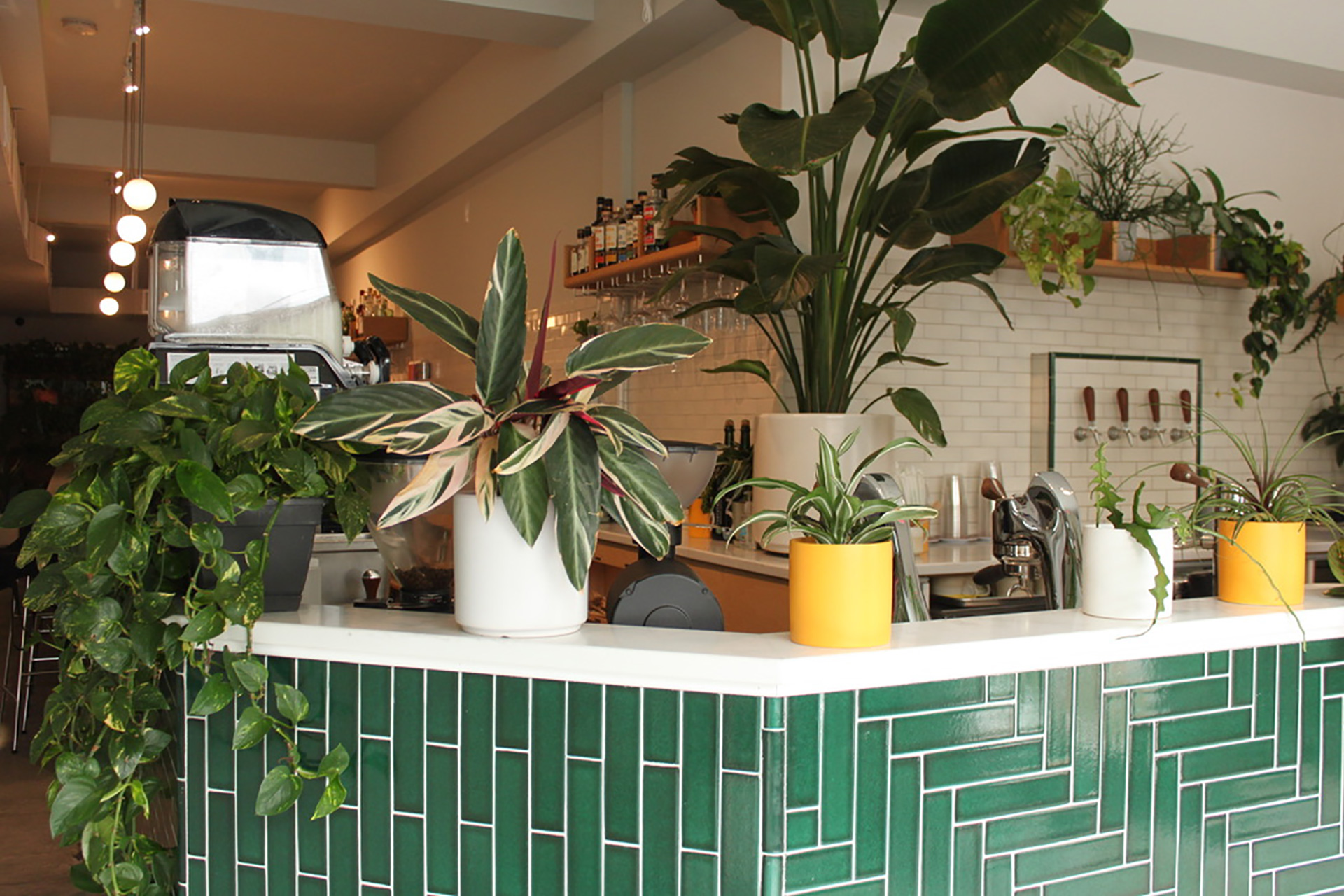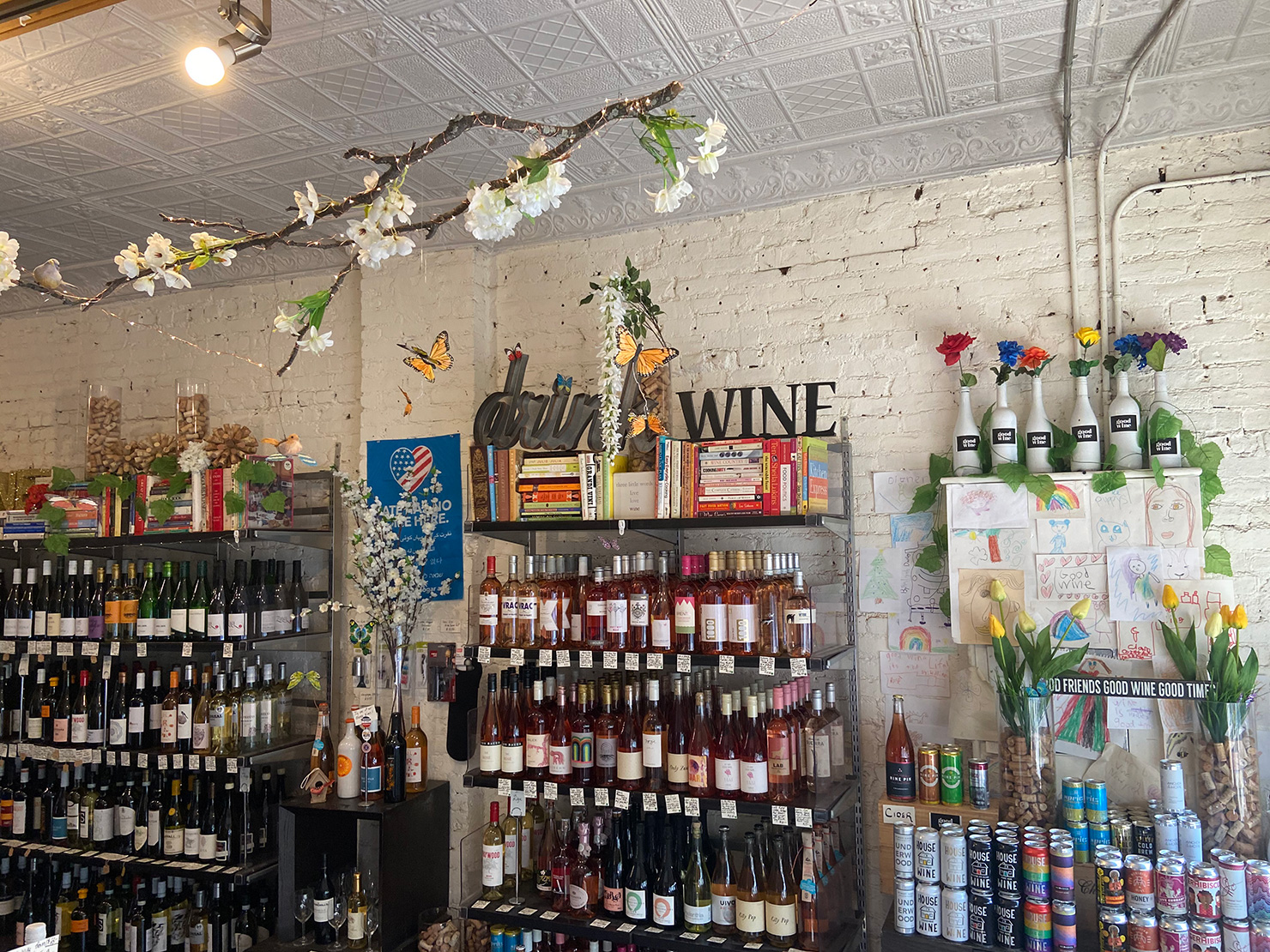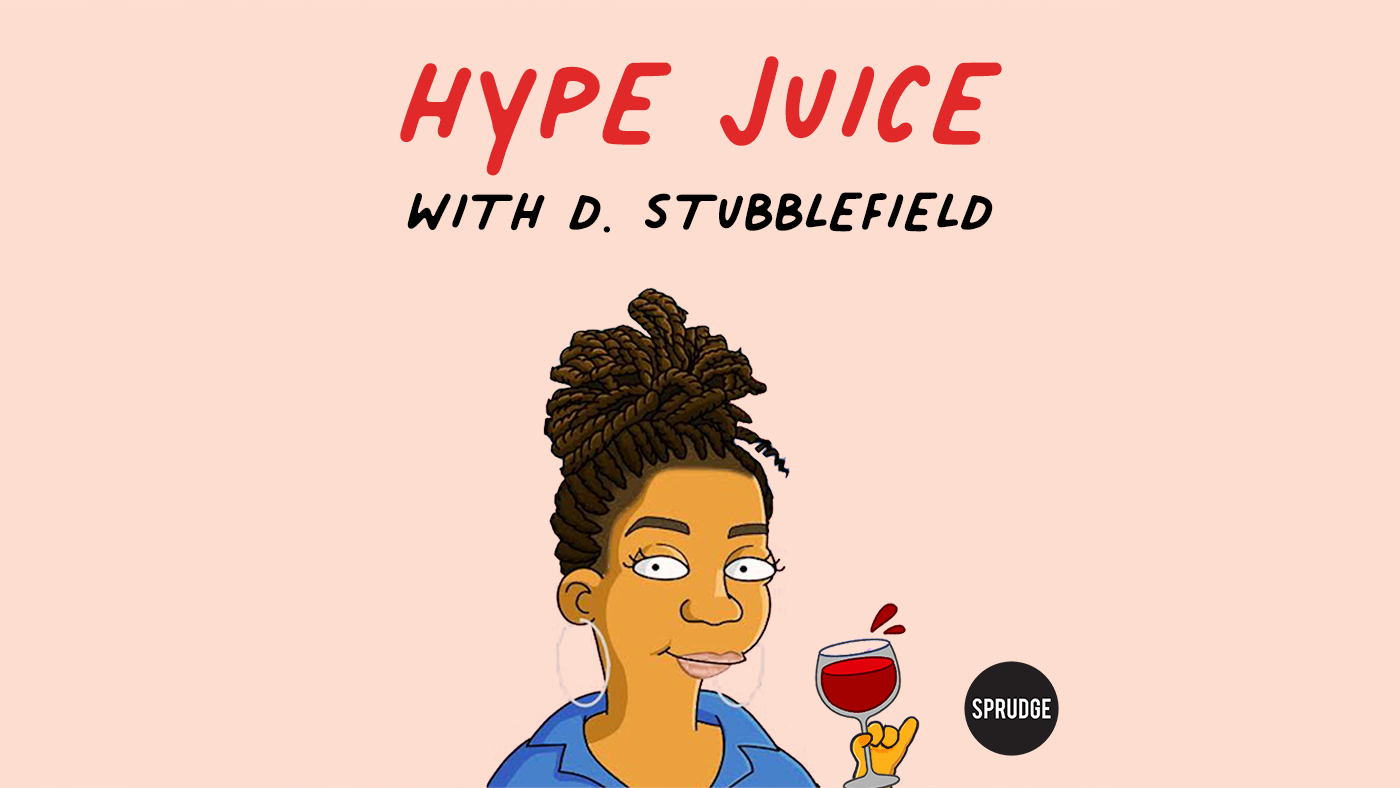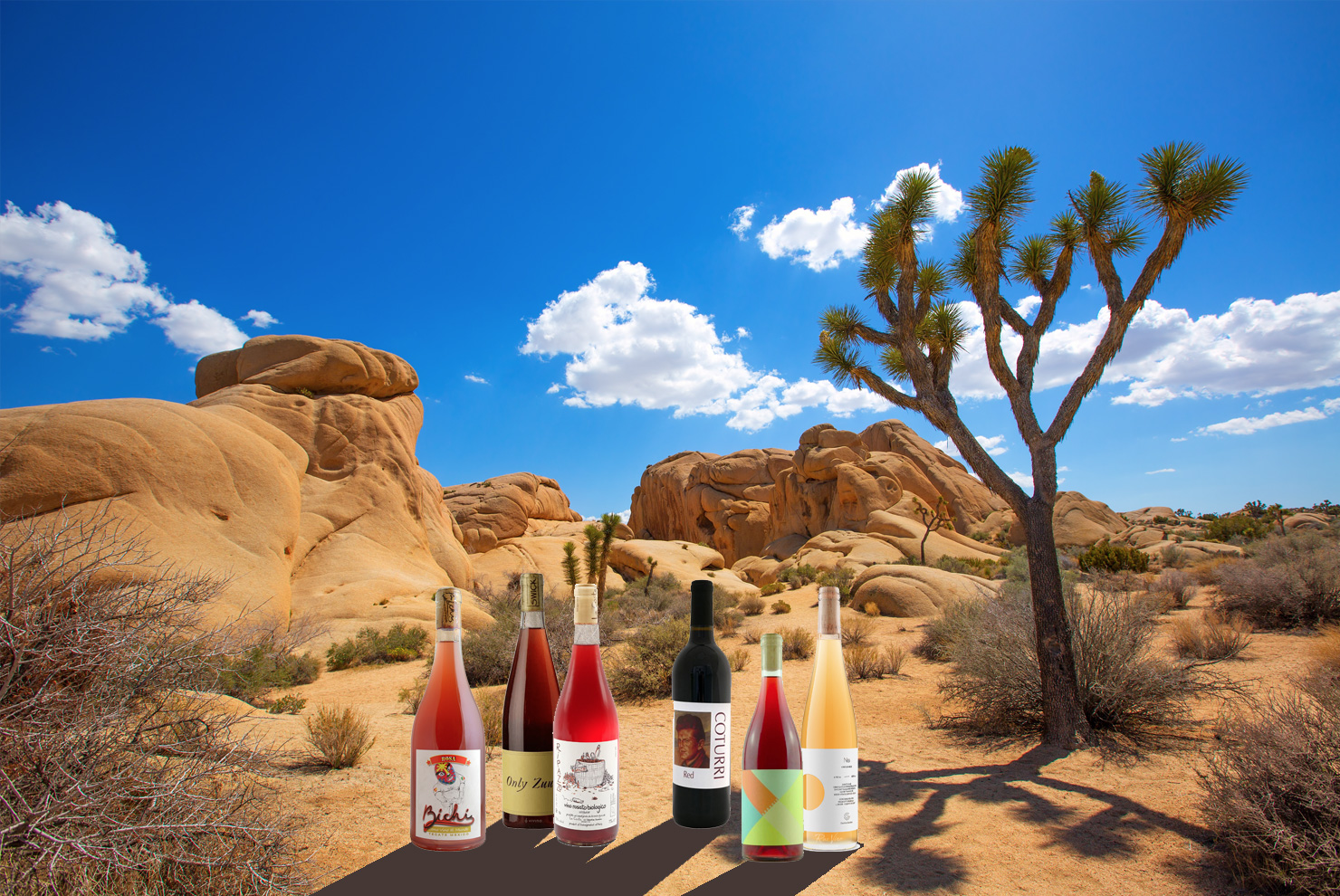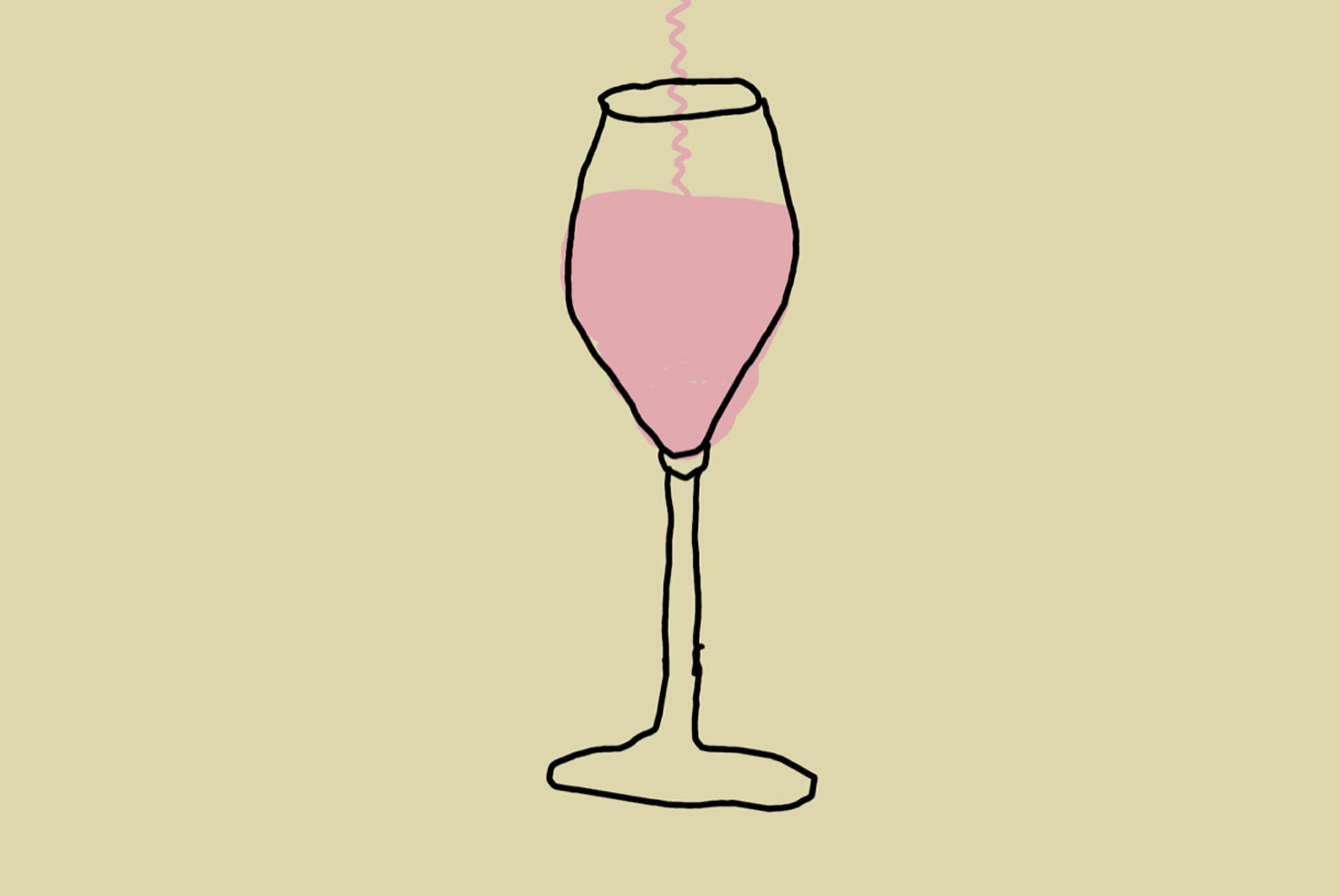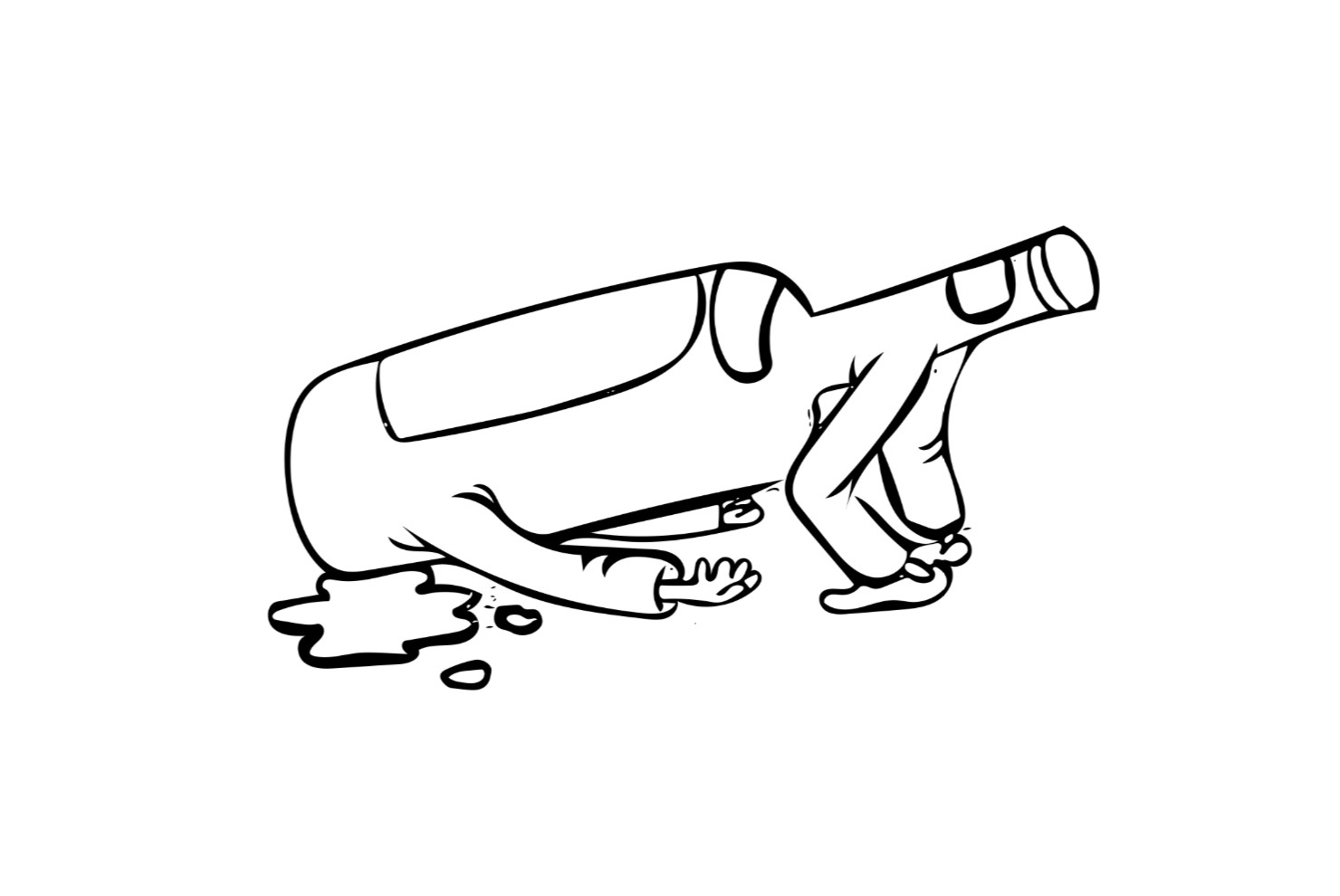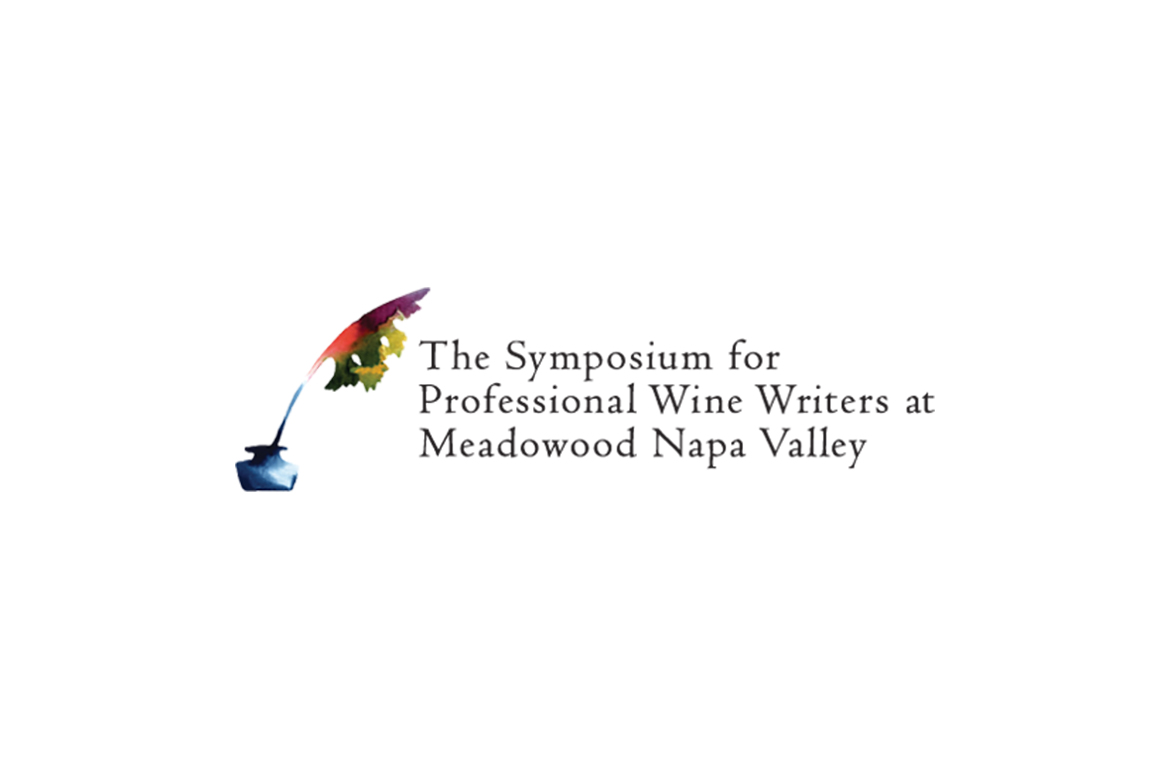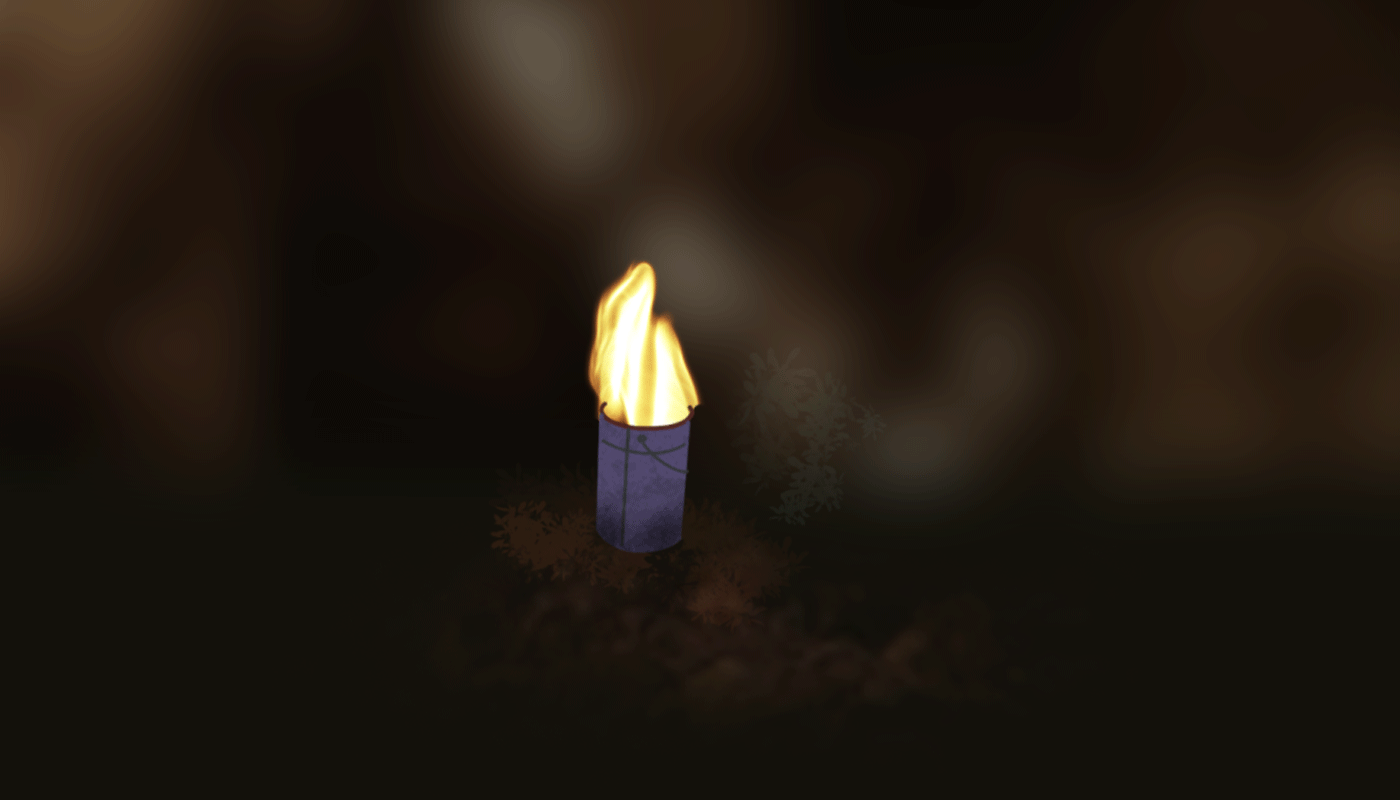The other day, I sold a bottle of Barolo to some old rich people at my restaurant. I poured them a sip and they dug it. I appreciated how they didn’t say, “Oh, I think it needs some time to open up,” which is a thing people like to say to me—their somm—probably because they heard a person in a movie say it once and they think it’s what they’re supposed to say, what I want them to say.
I don’t. A freshly-opened bottle of wine is akin to a person who just woke up from a nap: tously-haired, puffy-eyed, and discombobulated. And any wine as opulent and complicated as a Barolo has likely been aged in bottle for five or so years before release as per their respective appellation’s specifications, and on top of this, we can only assume that these wines have undergone an additional spell of aging in whichever restaurant or rich person’s wine cellar they call their home.
I don’t work at an Italian restaurant, and evidently the old rich people who bought the Barolo don’t really let their freak flag fly too often, so the three of us engaged in a moderately entertaining bit where they acted like they were being so naughty for pairing an Italian wine with non-Italian cuisine. “You rebels!” I chided them, “Things are getting rowdy up in this place!” (This was funny, you see, because things in fact weren’t getting rowdy up in that place.)
“But seriously,” I went on, affecting my soberest “I’m a sommelier/I went to wine school/People literally pay me to do this” air, “Italian wines are the greatest food wines in the world. They’ll pair well with pretty much anything.”
“Oh, but have you been?”
“To Italy? Oh no, I haven’t. But,” I offered weakly, “I ran an Italian wine bar for two years!”
“Oh, you must go,” this woman insisted.
“I’m poor,” I imagined myself replying, “I’m your sommelier, not your, like, mutual funds advisor, or whatever other rich person thing you have. Do you think that if I could afford to go to Italy I would be, like, not in Italy right now? Do you think I don’t know that Italy is good?”
Instead, because I am normal at my job, I promised her that indeed I would visit Italy one day, as though it was the first time in my life the subject had ever come up. And I told her that Italian wine is where my heart is, wine-wise. Because it is.
Later that evening, I recanted this anecdote to my best friend at work, and he responded in a hammy woman-of-the-world/Joan Collins/Kathleen Turner-y accent—“Have you been to Italy? Darling, you must go. I came of age in Italy. Have you ever had red wine with chocolate?”—and I laughed so hard with tears streaming down my face and the next day I was on the subway and remembered it happened and started laughing uncontrollably again. I laughed so hard that the guy sitting across from me started laughing too. He simply couldn’t resist.
**
Like I said, I ran an Italian wine bar for two years. I took the job because Italian wine had always been my weak spot as a somm, and I wanted to get paid rather than pay to learn. The space was tucked uncomfortably into a runty corner of an inordinately busy uptown Toronto Italian mainstay, with an L-shaped patio curving around its floor-to-ceiling windows, several hideous chainstore logotypes blaring loudly in the background. Even with the natural light the place felt as slick and grey as a river stone, dark and cellar-cold, but not inelegant. The bar was long, and its upper confines were lined with chi-chi neon-lit wine fridges, cooling all of our reds down to an icy 13 degrees Celsius: this temperature reflected our owner’s vehement devotion to Nebbiolo, which in most instances performs to the best of her ability when served slightly chilled. But it was humiliating how many times I had to pour a guest a thick black Aglianico cooled down to the temperature of a refreshing sweet tea.
Early in my tenure at the wine bar, the owner came in with some of his boys. He asked me what I thought they should drink, I had no fucking idea, so said, “Hmm, let me think,” to buy myself some time. Behind the bar, I pored over our wine list—200 bins deep, and I knew like four of them, as our bartender, who’d worked there for ages, coached me: “He’s had this before, he’s had this before, he’s had this before, I think he likes this, he’d never drink this, basically ignore this entire region,” and I came up with two options: both Barolos, his favorite. Safe bet.
I steadied a bottle of wine on either of my hipbones while the owner stabbed at stacks of maltagliati with a fork. Maltagliati is a type of pasta made from scraps of other types of pasta, irregular kind-of-triangles and sort-of-squares from a flat sheet left over from what will eventually become pappardelle, or tagliatelle, a child’s failed attempt at rendering an even octagon, a glossy lump in a flat clay bowl, eager to congeal.
On the plate they reminded me of a hat-ful of little slips of paper. I imagined myself picking a Secret Santa out of a hat.
The first Barolo was an older vintage from a lesser producer, the other more recent—youthful, but not uselessy so—from a legend. Selling him on the benefits of both, I was delighted to find myself “on a roll,” buttery, glycolic sentences pouring from my mouth like creamy, glistening eggs.
“It’s still a puppy,” he interrupted, in reference to the youth of the second wine, indirectly stating his choice.
“Arf arf,” I joked.
**
I poured the owner a taste of his chosen wine, then decanted it without direction. There was no reason to state the obvious: it needed time to open up.
“Get yourself a glass,” he directed, “Try it. Tell me what you think.”
I made a big sheepish deal out of communicating how grateful I was, then obeyed (Arf arf!). I poured two fingers of wine into a bell-shaped Burgundy glass, then left it out behind the bar, unsniffed and unsipped. I didn’t want to drink it then; I wanted to drink it at the end of the night: as a reward, as a treat (… arf arf), but as the night wore on he kept pressing me to share with him my tasting note, and I realized that he wasn’t just extending a kindness: it was a test.
I nosed the glass and thought of a cute sentence to say: “It smells like the concept of autumn exploded into a glass.” I imagined a picture of a nice rugged boot stomping on some orange and slightly muddy brown leaves. The boots would be brown and fucked up a bit. The person who owned them had already worn them through several years of autumns, and springs. They were a good investment. An investment boot.
One boot, one foot, resting on top of a log, some of the leaves stuck to the sole, and splaying out playfully, like the fur behind a Pomeranian’s ears. A palmful of crumbled-up rose petals and the smell of a beautiful stranger’s remarkably excellent-smelling perfume on a subway car. It makes you wonder, “Why can’t perfume ever smell that good on me?” Either I put on so much it makes my eyes water and I give myself a headache or else I try to exercise restraint and then I have sensory adaptation and can’t smell it at all. And it also smelled like the wine tasting note named “cigar box”—I’ve never actually smelled the inside of a cigar box, I just know how to know when it does. I guess at this point if I smelled the inside of a cigar box, I’d say, “It smells like a glass of Barolo.”
I took a sip and the fruit came through. It smelled like your mother packed you a Tupperware full of cherries and plums in your elementary school lunchbox, but you didn’t want to eat it because you were a kid and who cares about fruit when there’s better shit around, like a granola bar with chocolate chips in it, which is closer to candy, so you shoved it into the bottom of your backpack and then forgot about it, then opened it up a week later, and your mother got mad at you for being so careless.
My point is: the wine was old.
Not too old, not so old, but definitely at the beginning of the end: the wine equivalent of a 55-year-old man who smokes a lot of cigarettes and eats through a plastic box of mini-powdered donuts every couple days. You know: those boxes with the snaps on them. They’re the loudest sound in the world, especially if you’re opening one in the middle of the night, alone, in the dark. Which this man often does.
I walked outside and almost curtsied before them, which was appropriate, since these encounters are always a performance—on my end, at least. I said my cute line about “It smells like the concept of autumn exploded into a glass,” and the men all laughed. I did my little song and dance for them, little drummer-monkey, gooooood monkey—so smart!
I ended with a lame bang. I was nervous to say it…
“But—I do think it’s just a liiitttttle over…”
When I said the word little I made the schoolteacher-like “teensy bit” gesture with my thumb and index finger: not quite, but just about, pinching them together.
“Thank you, sister!” exclaimed the owner, and he high-fived me. I did the thing where I looked at his elbow while I high-fived him, so I wouldn’t fuck it up.
**
After that, I was in. I had correctly identified a wine as being slightly past its prime, in doing so proving to the owner of my restaurant that I was able to do my job: a deafening feat that many men in the wine industry continue to doubt any given woman’s ability to accomplish.
A few weeks later, he invited me and the wine director of the company to attend a blind Italian wine tasting. The wine director was wearing sunglasses pushed up on top of his bald head like a stupid floral headband on a bald girl baby. There was a picture of a boar on his t-shirt and he said “It’s because we’ll be tasting Barolo,” and I said “Haha, yeah,” and he looked at me like, “Don’t you get it?” and I gave him a look like, “I don’t get it, please help me,” and he said “Wild boar pairs well with Barolo,” and I hit my forehead like God, what a big ol dummy I am, and smiled like I thought it was a funny joke.
The wine director loved blind tastings, because he was a man, and men love blind tastings, because they’re pissing contests, and men lose their shit over that shit. See, the thing about a blind tasting is that they’re the only way to accurately assess the quality of a wine: you’re tasting based on the way the wine tastes, your brain pure, wide-open, not bogged down or swayed by all the sweet precious details you’ve gleaned from Googling the winery’s website about how the vineyard’s been in the family since 1581 and they ride on blonde horses to pick the grapes down the side of a mountain named after the Campanian mountain goddess who turned the stars to the grapes in the ancient legend, and the soil’s made out of a billion-year-old lobster bones and all the horses’ saddles are oxblood-color and embossed with the family crest of two mermaids in a yin-yang and you can smell the seaside in the air and the winemaker’s name is Arabella or Marcello or Pepper and there’s a picture of a bunny rabbit on the label of wine and it was rendered in charcoal by Pepper’s lover and you met Pepper’s lover at a wine tasting in Ischia last year and his skin was so beautiful it looked like it was made of sunlit leather and he had crow’s feet and smile lines and a mole shaped like a heart on his upper right forearm and a stick and poke tattoo of a bunny on his thumb and after the tasting you ran into him at a bar down the street and he said, “Let me buy you a shot of whatever you want,” and for some reason you picked spiced rum which you were really surprised they even had, at the Ischia bar, but they did. It had been sitting around there since 1982, with all this molassesy crud caked up around the top of the bottle, and you were like so fucking wasted and you were like “Honestly, what’s the difference between a bunny and a rabbit? Like, is bunny specifically meant to refer to a baby rabbit, or is it just a nickname for a rabbit? What’s the point of having a nickname for a rabbit? Also, what’s a bunny rabbit? Is it, like, an adolescent rabbit? Like, Not A Girl, Not Yet A Woman?” And then the next morning you woke up and felt like your entire insides had been replaced by cement and then Pepper’s lover made you this really dope breakfast sandwich and never, not once, had an egg yolk been so orange!
And that, all that, the orange yolk shit—that’s the stuff I love most about wine. I love the way the exact same wine can taste good on a good day, and so bad on a bad day, or even bad on an average day. Or good on an average day! Good on a bad day, etc. That’s the best part of loving wine, and the biggest part of why Italian wine is, as I may have already mentioned… where my heart is.
Italian wines, it’s basically heresy to be writing words down about them on a computer keyboard, as I disgustingly am right now, since they’re already all scrawled down in loopy scratchy cursive on dusty crumbling ecru notepaper from 200 years ago, sealed with a wax seal in a hand-licked envelope. They’re broken hearts and bouquets of dead flowers, epic thunderstorms pummelling down upon the bodies of scorned lovers, long ago lost at sea. I’m being dramatic because these wines are dramatic, and Nebbiolos are the most emotive, persuasive, of them all. Nebbiolo is a grape that renders any blind tasting not specifically focused on tasting for vintage or vineyard site purposeless, since Nebbiolo always tastes like itself.
In Piemonte, we have our Barbarescos: sensitive tough guys who tongue-kiss with the finesse of a love interest in a Salt-n-Pepa song, teeming with fuzzy, unmissable tannins, like you just brushed your teeth with a pussywillow. And Langhe Nebbiolos, their gawky teenage siblings, future glowing-skinned fashion models, with “legs for days” as they say, splayed out fountainside as they knock back glass bottles of Coca-Cola and tie bright red cherry stems into knots with their teeth. Baby sis Nebbiolo d’Alba drapes sets of twin cherries over her ears like they’re earrings, her tannins still a cute growl: she’s a lion cub.
Meanwhile, over-east, their cute Lombardian cousins soak up the sun and smack of sweet strawberry anything submerged in syrupy strawberry everything: Valtellinas and Sforzatos, the Haribo of Nebbiolo, a candied bunch of grapes, dusted in white sour sugar.
And Barolo? You can’t miss it. It’s the one that tastes like a poem.
Laura Jane Faulds (@wine_child) is a writer and wine professional based in Toronto.




